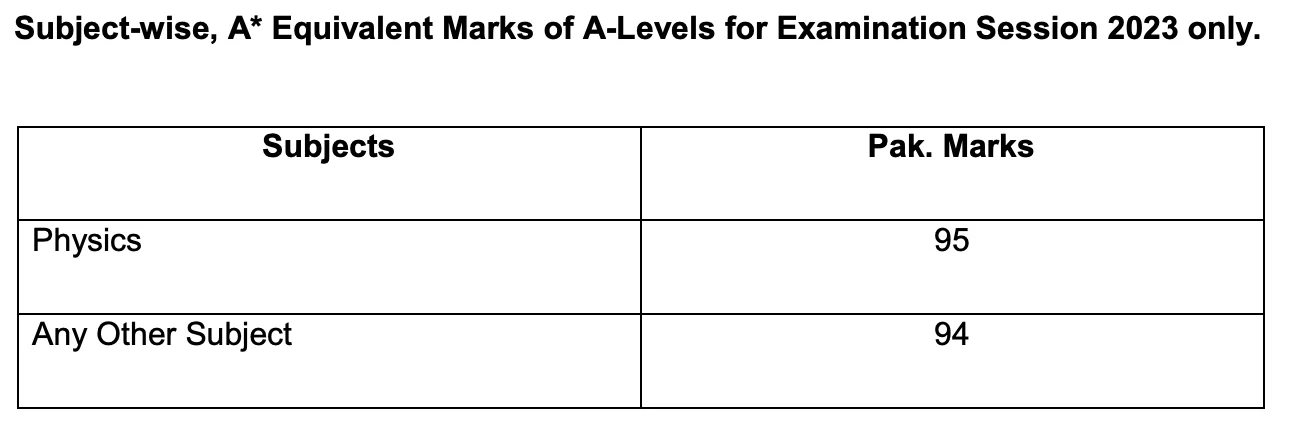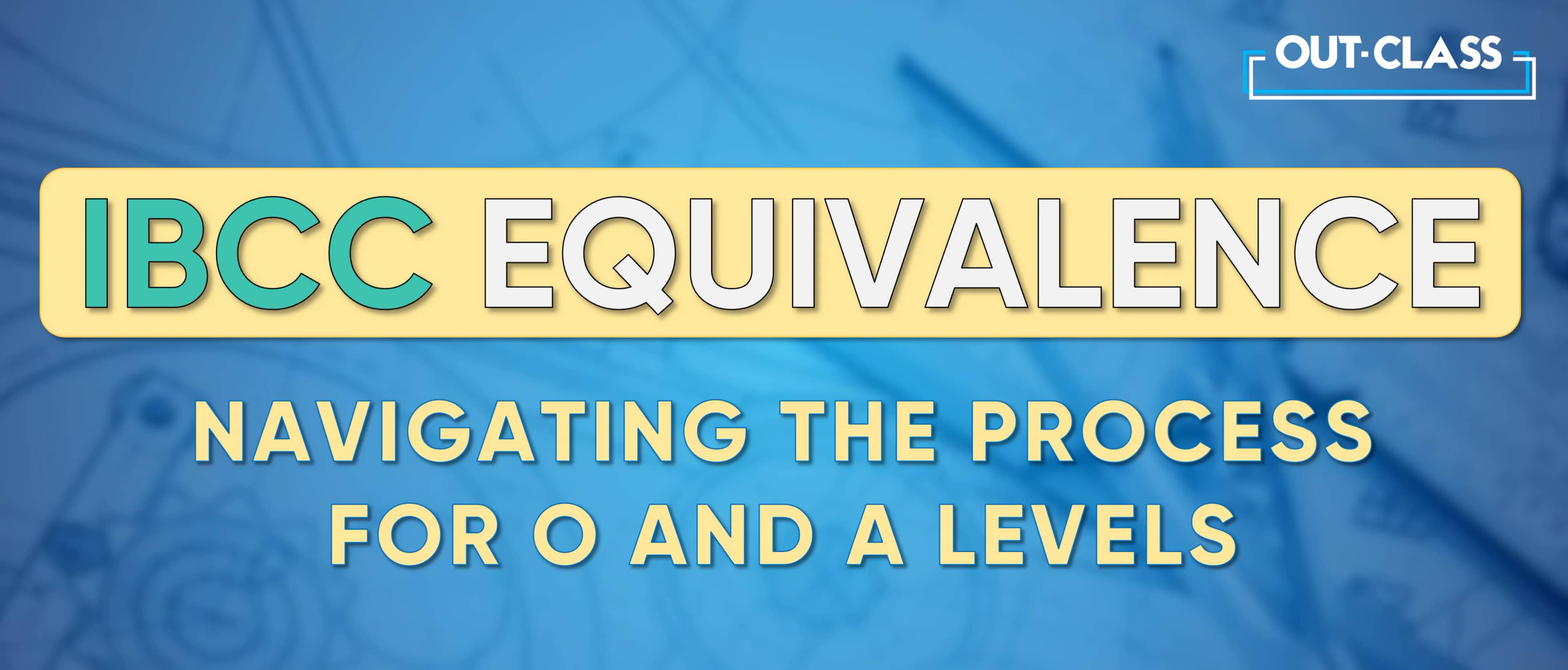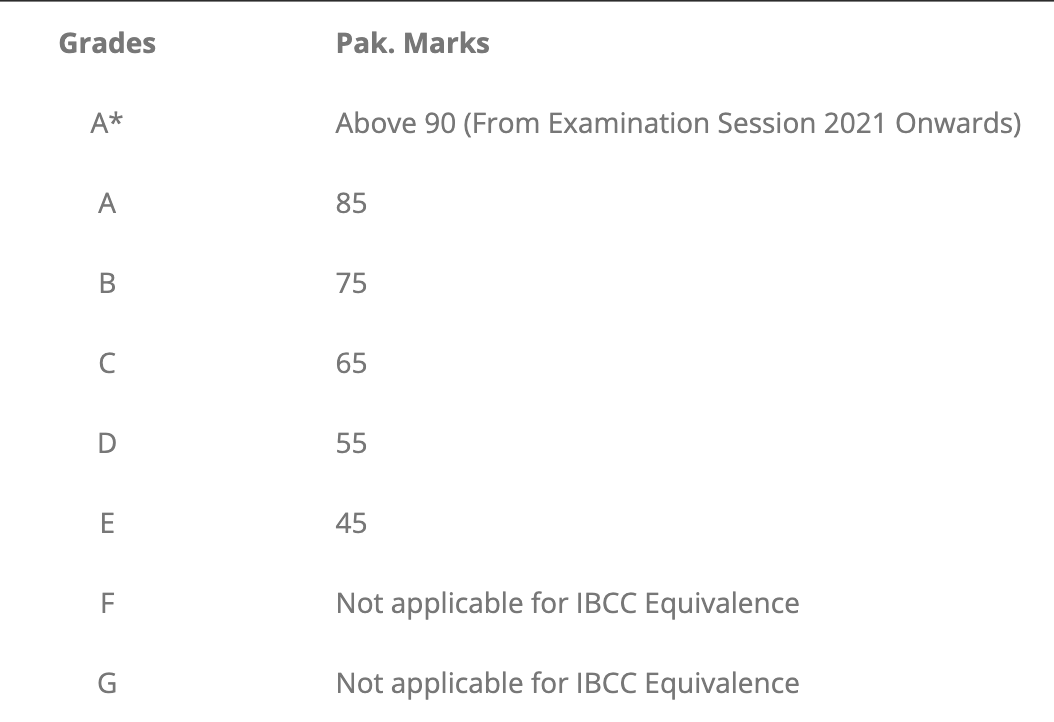Navigating the equivalence process of your O and A Level qualifications in Pakistan can seem daunting, but don't worry! Let's break down the rules and procedures in a simple, easy-to-understand manner. This guide will help you understand how IBCC (HEC representative) equates your foreign qualifications to the Pakistani educational system.
The Basics of Equivalence
The process of equivalence is all about matching your foreign qualifications to the corresponding stage in the Pakistani education system. This comparison mainly looks at the number of schooling years and subjects you've studied. If your education system doesn't align perfectly with Pakistan's model, these guidelines will help bridge the gap.
British System Equivalence
GCSE/IGCSE/GCE ‘O’ Levels
Let's start with the GCSE/IGCSE/GCE O’ Levels, which are considered equivalent to Pakistan's Secondary School Certificate (SSC). Here's what you need to know:
Pakistan-Based Examinations:
To achieve equivalence, you need eight subjects including mandatory ones like English, Mathematics, Urdu, Islamiyat, and Pakistan Studies, plus three elective subjects. You must score a minimum of E grade in each.
*Urdu, Islamiyat and Pakistan Studies are considered mandatory due to the rules and regulations set by the Government of Pakistan.
Overseas-Based Examinations:
The requirement is five subjects, including English, Mathematics, and three electives, each with at least an E grade.
For the Science Group:
You must pass Physics, Chemistry, Biology, Computer Science, or Information Technology. If you're aiming for further education in Medicine, Biology is a must. Otherwise, you'll be placed in the Arts Group.
Read more: O Level Subject Combinations
GCE A-Levels
GCE ‘A’ Levels equivalence is a bit different. It's considered equivalent to the Higher Secondary School Certificate (HSSC/Intermediate), with some specifics:
Pre-Medical Group:
You'll need eight (Pakistan Based) or five (Overseas Based) O’ Level subjects, including Physics, Chemistry, and Biology, plus three A’ Level subjects (Physics, Chemistry, and Biology), all with a minimum E grade.
Pre-Engineering Group:
Requires similar O’ Level subjects but includes Biology/Computer Studies, and at the A’ Level, you need Physics, Chemistry, and Mathematics.
Computer Science Group:
This group requires three A’ Level subjects (Physics, Mathematics, and Computer Science) along with your O’ Level subjects.
Humanities Group:
Here, you need English and Mathematics among your O’ Level subjects, along with any three A’ Level subjects.
*Special Conditions for Pakistani Nationals
- If you're a Pakistani national studying in Pakistan, you must pass O’ Level Islamiyat, Urdu and Pakistan Studies, along with the other required subjects, to qualify for equivalence.
- If you're a Pakistani national who has completed both your GCSE/IGCSE/GCE O’ Levels & GCE A’ Levels abroad, you're in luck! Urdu, Islamiyat, and Pakistan Studies are not compulsory for you.
- Pakistani-origin students holding dual nationality and studying in Pakistan are exempted from compulsory subjects like Islamiyat, Urdu, and Pakistan Studies if they're passing GCE O’ Levels or an equivalent foreign qualification.
- If you've passed your GCE O’ Levels or an equivalent qualification abroad and appear for your GCE A’ Levels (or vice versa) in Pakistan, you'll need to pass Urdu, Islamiyat, and Pakistan Studies at the SSC or GCE O’ Level to get your equivalence certificate.
Grade Conversion from GCSE to Pakistani Marks
How do you calculate O Level equivalency?
The table outlines the conversion of O Level and A Level grades into the Pakistani marks system. Imagine each grade you've achieved, from the stellar A* to the humble E, morphing into marks that resonate with the Pakistani education system.
Related: O Level Grading System
The table lists specific grade conversions, with A* being the highest, translating to a Pakistani mark above 90 from the 2021 examination session onwards, and descending through grades A, B, C, D, and E with corresponding Pakistani marks. Grades F and G are not applicable for IBCC equivalence.
Additionally, there are subject-wise A* equivalent marks for specific subjects in O-Levels and A-Levels for the examination session of 2023 only, with varying marks for different subjects.
O-Levels:

A-Levels:

Key Difference:
Navigating the equivalence process for O Level students in Pakistan involves a crucial understanding: an A* grade in both O and A Levels isn't a straight shot to 100% in the Pakistani system, but rather, it translates to a mark slightly lower. Recognizing this key difference is essential as it significantly impacts the overall calculation of your marks when seeking equivalence. While an A* is the highest achievement in O Level and A Levels, it translates to a mark slightly below 100 on the Pakistani grading scale. This helps in setting realistic expectations and better planning for your academic future in Pakistan.
Related: Ultimate Guide to A Levels
How to Start the Equivalence Process?
Embarking on the equivalence process begins with a simple yet significant step: getting the form. Good news – it's absolutely free of cost! This form, known as E-2 (British Qualifications), is your golden ticket if you have qualifications recognized by the IBCC from British Examining Bodies, no matter where in the world you took those exams.
Tip#1: Timing is Everything: Validity and Requirements
Keep an eye on the clock! Your 'O' and 'A' level statement of results has a shelf life of just six months. Once this period lapses, you'll need the original certificate. A word of caution: provisional equivalence is only issued based on the Statement of Results, so timing is crucial.
Tip#2: The No-Go for Downloads
While we live in the digital age, the IBCC sticks to the old-school rule here: downloaded results, even if verified by your school, won't cut it for equivalence.
Tip#3: A Look Back: Verification for Older Sessions
Got qualifications older than five years? You'll need to swing by the British Council for verification – it's a mandatory step to ensure the authenticity of your certificates.
Tip#4: Consistency is Key: Personal Details
Make sure your name and date of birth are consistent across all certificates and your CNIC/Passport. Any discrepancy might send you back to square one!
*Special Case: Studying Abroad and Back
If you've studied part of your 'O' or 'A' levels abroad and part in Pakistan, remember: Urdu, Islamiyat, and Pakistan Studies at O' Level are non-negotiable for your equivalence certificate.
The Checklist: Required Documents
When it comes to documentation, it's a bit of a treasure hunt. You'll need:
1. Payment receipt.
2. Original O and A Level certificates, plus photocopies.
3. Earlier equivalence copies, if any.
4. CNIC/Smart Card/B. Form/Birth certificate.
5. Parent/guardian's CNIC.
6. Passport copies with visas, if applicable.
7. If revising or duplicating equivalence, there are additional requirements like the original certificate, an application for revision, and a notarized affidavit in case of loss.
Wrapping Up
That's quite the checklist, but it's an essential part of ensuring your British qualifications of O Levels and A Levels are fully recognized in Pakistan. Each step, from ensuring the validity of your results to submitting the right documents, plays a crucial role. Remember, this process is a stepping stone towards validating your academic efforts and paving the way for your future endeavours in Pakistan. Keep this Out-Class guide handy, and you'll be well on your way to successfully navigating the equivalence process!
FAQs:
Q. How do you calculate O Level equivalency?
The conversion of grades to Pakistani marks varies for O and A Levels. For example, an A* in O Levels corresponds to a mark slightly below 100 in the Pakistani system. Specific grade-to-mark conversions are provided by IBCC for each subject.
| Grade | Pakistani marks |
| A* | Above 90 |
| A | 85 |
| B | 75 |
| C | 65 |
| D | 55 |
| E | 45 |
| F & G | Not applicable for IBCC Equivalence |
Q. What is the equivalence process for O and A Level qualifications in Pakistan?
The equivalence process involves matching foreign qualifications, such as O and A Levels, to the corresponding stage in the Pakistani education system. It considers the number of schooling years and subjects studied. The Inter Board Committee of Chairmen (IBCC) is responsible for equating foreign qualifications.
Q. What are the equivalence requirements for O Levels in Pakistan?
For Pakistan-based examinations, you need eight subjects, including mandatory ones like English, Mathematics, Urdu, Islamiyat, and Pakistan Studies, with a minimum E grade. For overseas-based examinations, five subjects, including English, Mathematics, and three electives, each with at least an E grade, are required.
Q. What are the key considerations for Pakistani nationals seeking equivalence?
Pakistani nationals studying in Pakistan must pass O’ Level Islamiyat, Urdu, and Pakistan Studies along with other required subjects. Exemptions exist for Pakistani-origin students with dual nationality studying in Pakistan.
Q. How can one initiate the equivalence process in Pakistan?
The process starts by obtaining the E-2 (British Qualifications) form, which is free of cost. The form is for qualifications recognized by IBCC from British Examining Bodies. Original certificates, a payment receipt, CNIC/passport, and other required documents are part of the application.
Q. Can downloaded results be used for the equivalence process?
No, downloaded results, even if verified by the school, are not accepted for the equivalence process. Only original certificates are considered.





